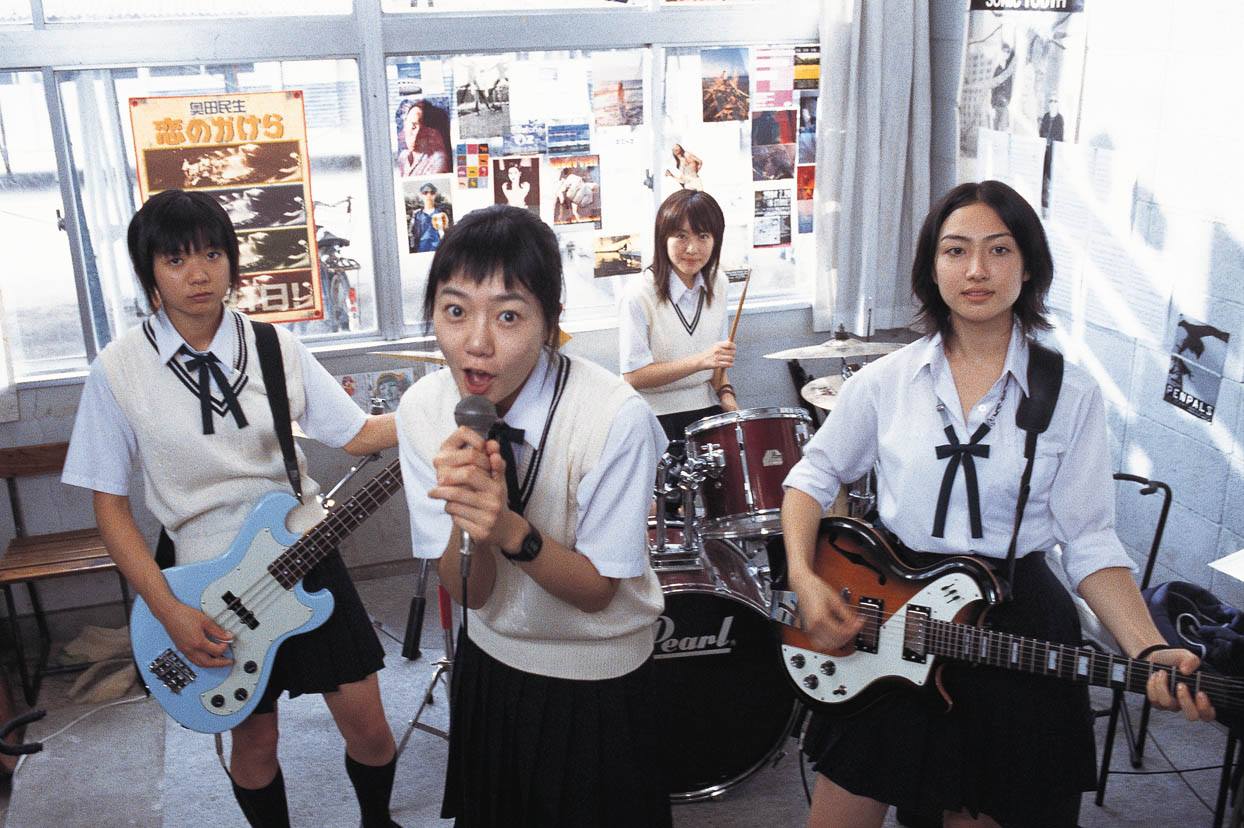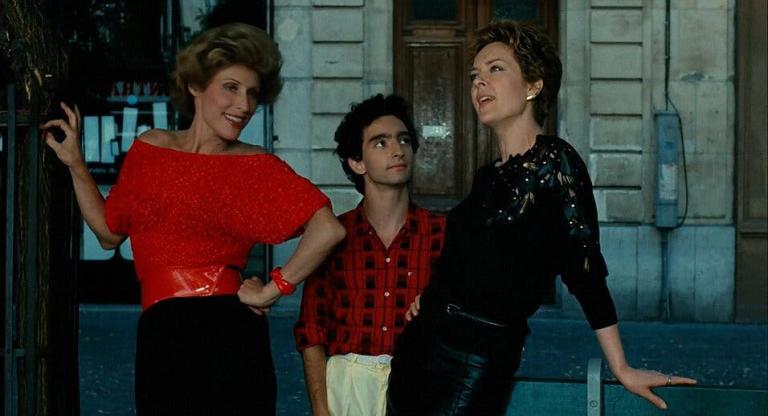“Let’s sing an endless song / For this asshole of a world.” Korean exchange student Son (Bae Doona) spits out those words with joyful vitriol toward the end of Linda Linda Linda (2005), a coming-of-age movie in which no one wants to come of age. It’s set in 2004 when Japan was in the middle of its “lost decades” of economic stagnation, so instead of studying for a future that seemed fucked, four high school girls start a punk band, religiously rehearsing The Blue Hearts’ anthem “Linda Linda” (1987) to prep for a local performance. A cult hit in Japan, the film also received a small release in the US, but has been out of circulation here for many years. It’s been easier to find a music video for the L.A. pop-punk band The Linda Lindas than to watch the movie that inspired their name. Thankfully, for its 20th anniversary, Linda Linda Linda has been restored in 4K and is opening in theaters this Friday, September 5th.
Director Nobuhiro Yamashita recently identified what sets the film apart, talking about how most teen movies “would focus on something like wanting to lose one's virginity, but this film doesn't focus on anything; it's just about playing in a band.” Yamashita got his start making focus-less films, three deadpan Jarmuschian indies that he made on 16mm with his college buddies in Osaka. Hazy Life (2000), No One’s Ark (2003), and Ramblers (2003) form what Yamashita calls his “Bad Guy Trilogy.” They are all about layabout slackers killing time in the hope that the following morning will contain less of it.
Linda Linda Linda was Yamashita’s graduation to professional filmmaking. It marked his first time shooting on 35mm with an experienced crew, but it retains his languorous pacing. During the school day there are slow lateral tracking shots, with students emerging and disappearing from view; at practice, he uses a static camera, with compositions of the full group, their eyes locking in to each other and to the beat. In the band’s communal focus on not messing up, a camaraderie emerges. You don’t learn much about their personal lives, but you follow Kei’s (Yuu Kashii) shaky transition from keyboard to guitar, Kyoko’s (Aki Maeda) robotically steady pulse on drums, and Nozomi’s devotion to the bass even as her siblings walk on her tablature (Shiori Sekine, from rock group Base Ball Bear). Son has the biggest learning curve as a Korean singing in Japanese, but gives herself over bodily to the music, weeping when she hears “Linda Linda” for the first time over headphones. It unlocks something inside her, an outsider among outsiders, finding a way to feel at home in this asshole world.
Linda Linda Linda screens September 5-11 at IFC Center



